ARTICLE AD BOX
Ben Schofield
BBC political correspondent, East of England

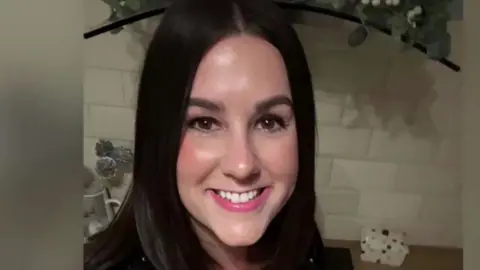 X.com
X.com
Lucy Connolly called for hotels housing asylum seekers to be set on fire and wrote "if that makes me racist, so be it"
Lucy Connolly's 51-word online post in the wake of the Southport killings led her to jail and into the centre of a row over free speech.
For some, the 31-month jail term imposed for inciting race hate was "tyrannical", while one commentator said Connolly was a "hostage of the British state", and another that she was "clearly a political prisoner".
Court of Appeal judges, however, this week refused to reduce her sentence.
Asked about her case in Parliament, Prime Minister Keir Starmer said sentencing was "a matter for the courts" and that while he was "strongly in favour of free speech", he was "equally against incitement to violence".
Rupert Lowe, the independent MP for Great Yarmouth, said the situation was "morally repugnant" and added: "This is not the Britain I want to live in."
Others said her supporters wanted a "right to be racist".

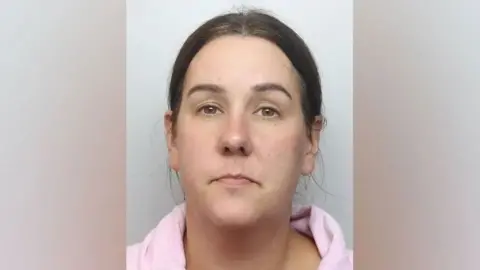 Northamptonshire Police
Northamptonshire Police
Connolly's legal team argued her sentence was "manifestly excessive" but the Court of Appeal disagreed
Warning: This report contains racist and discriminatory language
In July last year, prompted by a false rumour that an illegal immigrant was responsible for the murder of three girls at a dance workshop in Southport, Connolly posted online calling for "mass deportation now", adding "set fire to all the... hotels [housing asylum seekers]... for all I care".
Connolly, then a 41-year-old Northampton childminder, added: "If that makes me racist, so be it."
At the time she had about 9,000 followers on X. Her message was reposted 940 times and viewed 310,000 times, before she deleted it three and a half hours later.
In October she was jailed after admitting inciting racial hatred.
Three appeal court judges this week ruled the 31-month sentence was not "manifestly excessive".

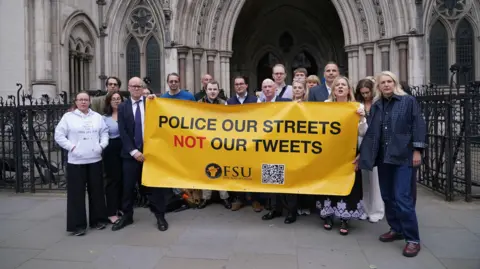 PA Media
PA Media
Connolly's appeal was paid for by the Free Speech Union, founded by Lord Toby Young (holding left edge of the banner)
Stephen O'Grady, a legal officer with the Free Speech Union (FSU), said the sentence seemed "rather steep in proportion to the offence".
His organisation has worked with Connolly's family since November and funded her appeal.
Mr O'Grady said Connolly "wasn't some lager-fuelled hooligan on the streets" and pointed to her being a mother of a 12-year-old daughter, who had also lost a son when he was just 19 months old.
He said there was a "difference between howling racist abuse at somebody in the street and throwing bricks at the police" and "sending tweets, which were perhaps regrettable but wouldn't have the same immediate effect".

 Free Speech Union
Free Speech Union
Stephen O'Grady said Connolly's case demonstrated "police overreach"
Connolly's case was also "emblematic of wider concerns" about "increasing police interest in people's online activity", Mr O'Grady said.
The FSU had received "a slew of queries" from people who were "very unsure" about "the limits of what they can they can say online", he said, and who feared "the police are going to come knocking on the door".
"There's an immense amount of police overreach," he added.
He cited the example of a retired special constable detained after challenging a pro-Palestine supporter online, a case the FSU took on.
Responding to Mr O'Grady's claim, a National Police Chiefs' Council spokesperson said that Article 10 of the Human Rights Act "protects a person's right to hold opinions and to express them freely" and that officers received training about the act.
They added: "It remains imperative that officers and staff continue to receive training commensurate with the demands placed upon them."

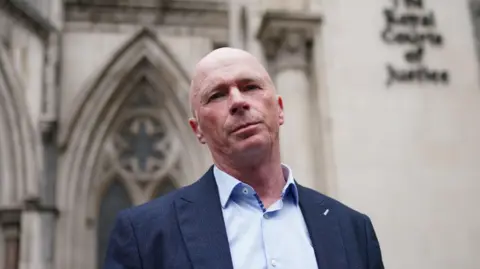 PA Media
PA Media
Raymond Connolly said the Court of Appeal had shown his wife "no mercy"
After the appeal was dismissed, Connolly's husband, Conservative town councillor Raymond Connolly, said she was "a good person and not a racist" and had "paid a very high price for making a mistake".
Her local Labour MP, Northampton South's Mike Reader, said he had "big sympathy" for Connolly and her daughter, but there was no justification for accusing the police of "overreach".
He said: "I want the police to protect us online and I want the police to protect us on the streets and they should be doing it equally."
It was a "fallacy" and "misunderstanding of the world" if people did not "believe that the online space is as dangerous for people as the streets," he added.
"We're all attached to our phones; we're all influenced by what we see, and I think it's right that the police took action here."

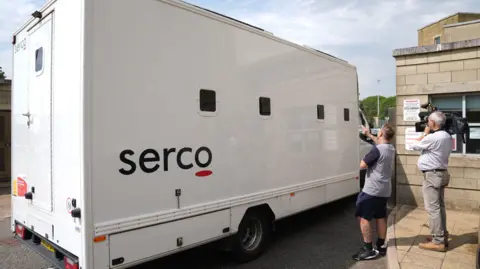 PA Media
PA Media
Connolly had pleaded guilty but argued at appeal she had not intended to incite serious violence
In his sentencing remarks, Judge Melbourne Inman said Connolly's offence was "category A" - meaning "high culpability" - and that both the prosecution and her own barrister agreed she "intended to incite serious violence".
For Reader, this showed "they weren't arguing this was a silly tweet and she should be let off - her own counsel agreed this was a serious issue".
At her appeal, Connolly claimed that while she accepted she intended to stir up racial hatred, she always denied trying to incite violence.
But Lord Justice Holroyde said in a judgement this week the evidence "clearly shows that she was well aware of what she was admitting".
Sentencing guidelines for the offence indicate a starting point of three years' custody.
While the prosecution argued the offence was aggravated by its timing, "particularly sensitive social climate", the defence argued the tweet had been posted before any violence had started, and that Connolly had "subsequently attempted to stop the violence after it had erupted".
The judgement also highlighted other online posts from Connolly that the judges said indicated her "view about illegal immigrants".
Four days before the Southport murders, she responded to a video shared by far-right activist Tommy Robinson showing a black man being tackled to the ground for allegedly performing a sex act in public.
Connolly posted: "Somalian, I guess. Loads of them," followed by a vomiting emoji.
On 3 August, responding to an anti-racism protest in Manchester, she wrote: "I take it they will all be in line to sign up to house an illegal boat invader then. Oh sorry, refugee.
"Maybe sign a waiver to say they don't mind if it's one of their family that gets attacked, butchered, raped etc, by unvetted criminals."
The FSU said she was likely to be eligible for release from August, after serving 40% of her sentence.
Some, including Mr O'Grady, argued her jail term was longer than punishments handed to criminals perceived to have committed "far worse" crimes.
Reform UK's Mark Arnull, the leader of West Northamptonshire Council, said it was not for him "to pass comment on sentences or indeed discuss individual cases".
But he added: "It's relatively easy to understand why constituents in West Northamptonshire question the proportionality of Lucy's sentence when they see offenders in other high-profile and serious cases walk free and avoid jail."

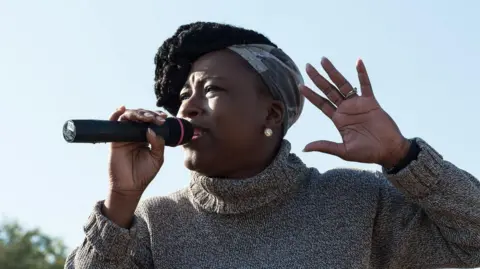 Shola Mos-Shogbamimu
Shola Mos-Shogbamimu
Shola Mos-Shogbamimu believed Connolly's supporters wanted a "right to be racist"
The issue for writer and activist Shola Mos-Shogbamimu was that "those who have committed worse crimes" should "spend more time in jail, not less time for Lucy Connolly".
Dr Mos-Shogbamimu added: "It's not 'freedom of speech without accountability'. She didn't tweet something that hurt someone's feelings; she tweeted saying someone should die."
In her view, those making Connolly a "flag-bearer or champion" for free speech were asking for "the right to be racist".
Free speech advocate Mr O'Grady said "no-one is arguing for an unfettered 'right' to incite racial hatred".
Connolly's case was about "proportionality", he added, and "the sense that online speech is increasingly being punished very harshly compared to other offending... such as in-person violent disorder".

 5 hours ago
5
5 hours ago
5


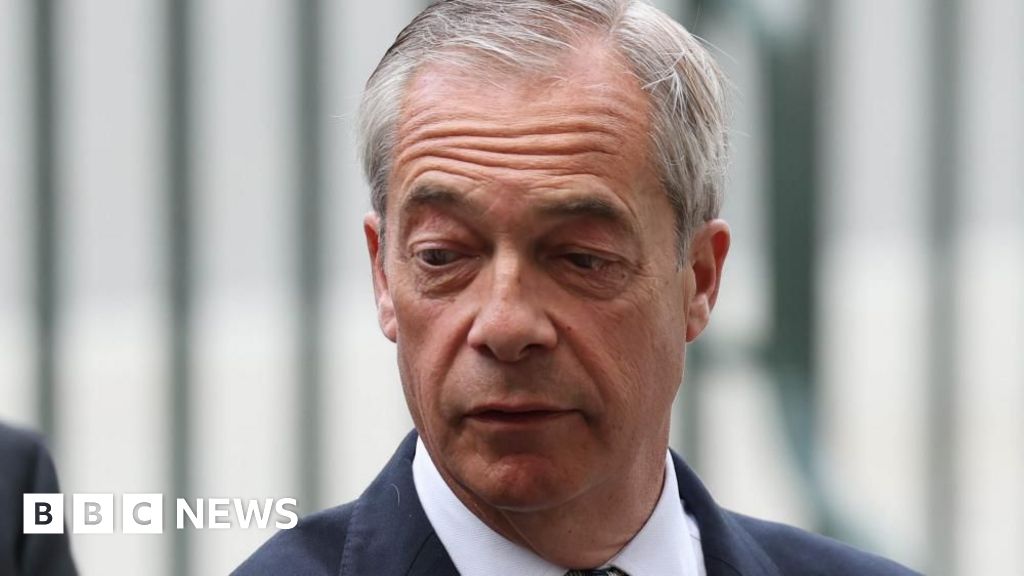





 English (US) ·
English (US) ·